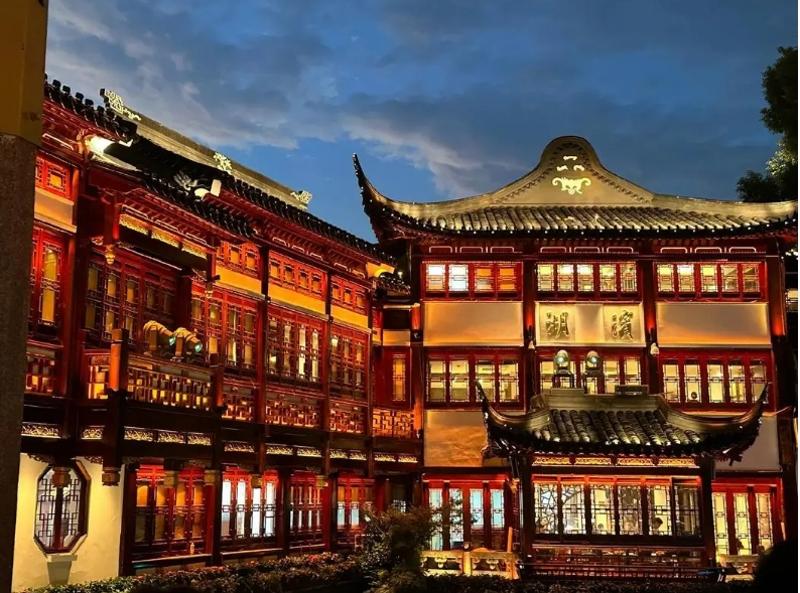Yuyuan

Shanghai: Yu Garden - A Classical Garden That Transcends Time
Located in the heart of Shanghai's Old City, Yu Garden is a private garden built during the late Ming Dynasty that has become one of Shanghai's most iconic attractions. It's not only a masterpiece of Jiangnan classical gardens but also a treasure trove steeped in historical and cultural significance, attracting countless visitors to experience its unique charm.
I. Historical Accumulation: From Private Garden to City Landmark
-
Ming Dynasty Origins: Yu Garden was built during the Jiajing era of the Ming Dynasty by Pan Yunduan, a wealthy merchant, for his father, Pan En. It was initially named "Yufengshanfang." Pan Yunduan renamed it "Yu Garden," which means "joyful garden," hoping that his father would enjoy his retirement in peace.
-
Enduring Through the Ages: Yu Garden witnessed the transformations of both the Ming and Qing Dynasties, changing hands several times and nearly falling into ruin due to war and other factors. It wasn't until the Guangxu era of the Qing Dynasty that businessman Xu Run acquired the garden and undertook its renovation, gradually restoring its former glory.
-
Modern Development: At the beginning of the 20th century, Yu Garden was opened to the public, becoming a popular leisure and entertainment destination for citizens. In 1958, it was designated as a protected cultural relic by the Shanghai Municipal Government, further affirming its historical and cultural value.
II. Architectural Excellence: A Fusion of Nature and Humanity
-
Pavilions and Towers: Yu Garden is renowned for its intricate architectural layout and distinctive Jiangnan garden style. The garden boasts various pavilions and towers, such as the "Yufenglou," "Sanshuitang," and "Cui Zhitang," each possessing a unique design and decoration, showcasing the finesse of Chinese classical architecture.
-
Artificial Hills and Water Features: Yu Garden ingeniously incorporates natural landscapes into its garden design, using elements like artificial hills, flowing water, and flowers and trees to create a serene and picturesque atmosphere. The garden's artificial hills take on diverse forms, with cascading waterfalls creating a dynamic landscape.
-
Carving and Paintings: The architectural decorations of Yu Garden are also distinctive. The walls, beams, pillars, and windows are adorned with exquisite carvings, displaying the mastery of traditional craftsmanship. The garden also features numerous murals depicting ancient myths and legends as well as famous landscape paintings, adding a cultural touch to the garden.
III. Cultural Inheritance: Bearing the Memory of History
-
Historical and Cultural Heritage: Yu Garden is not only a masterpiece of architectural art but also a repository of rich historical and cultural information. The garden preserves numerous relics and ancient sites, such as ancient wells from the Ming Dynasty and ancient steles from the Qing Dynasty, all serving as testaments to history and leaving precious cultural legacies for future generations.
-
Traditional Cultural Experience: Yu Garden is a vital window into experiencing traditional Chinese culture. Visitors can immerse themselves in traditional operas, savor Jiangnan cuisine, learn traditional crafts, and experience the unique charm of Chinese culture.
-
Modern Tourist Center: Today, Yu Garden has become a major tourist attraction in Shanghai, drawing visitors from around the world. While preserving its traditional cultural essence, Yu Garden actively integrates modern tourism elements, providing visitors with a richer and more diverse experience.
Conclusion: Yu Garden, a classical garden that transcends time, is a significant symbol of Shanghai's history and culture. Its exquisite architecture, picturesque scenery, and profound cultural depth attract countless visitors to experience the charm of Jiangnan gardens and the vastness of Chinese culture. Yu Garden will continue to carry on the spirit of Chinese culture, becoming a timeless classic in the hearts of people worldwide.